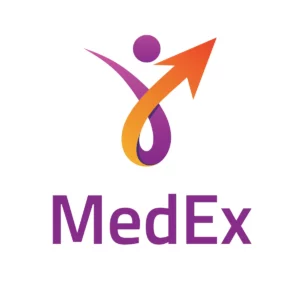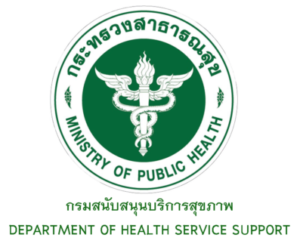
HIV and STD Testing in Phuket with MedEx: Your Go-To Solution for Express and Confidential Testing
Table of Contents One Stop Express and Confidential STD Testing in Bangkok MedEx is the one-stop solution for express and anonymous HIV
Table of Contents Understanding Non-Invasive Prenatal Testing (NIPT)/Non-Invasive Prenatal Screening (NIPS) Non-Invasive Prenatal Testing (NIPT) is a revolutionary method used to screen for certain genetic conditions in a fetus. This advanced screening technique is performed using a blood sample from the pregnant mother, making it a safer alternative to traditional invasive procedures such as amniocentesis […]

MedEx is a one-stop destination when it comes to medical tourism and digital specialized health care services. MedEx serves as a connector between patients and trusted world-class health service providers.


Non-Invasive Prenatal Testing (NIPT) is a revolutionary method used to screen for certain genetic conditions in a fetus. This advanced screening technique is performed using a blood sample from the pregnant mother, making it a safer alternative to traditional invasive procedures such as amniocentesis or chorionic villus sampling (CVS). NIPT analyzes cell-free fetal DNA (cffDNA) circulating in the mother's blood to detect abnormalities with remarkable accuracy and minimal risk to both the mother and the unborn baby.
NIPT leverages the presence of cell-free fetal DNA (cffDNA), which is derived from the placenta and circulates in the maternal bloodstream. By drawing a sample of the mother's blood, specialized laboratories can isolate and examine this fetal DNA. The primary focus of NIPT is to detect chromosomal anomalies such as trisomies, which involve the presence of an extra chromosome.
Determining the Baby's Gender through NIPS: NIPS can accurately determine the baby's gender as early as the 10th week of pregnancy. By analyzing the presence or absence of Y chromosomes in the cell-free fetal DNA, the test can identify whether the baby is male or female. This early gender determination is not only exciting for expectant parents but can also be important for assessing the risk of sex-linked genetic disorders.

NIPT offers several significant benefits over traditional prenatal screening and diagnostic methods:
NIPT is recommended for all pregnant women, regardless of age or risk factors. However, it is particularly beneficial for:
Non-Invasive Prenatal Testing (NIPT) represents a significant leap forward in prenatal care, offering expectant parents a safe, accurate, and early screening option for chromosomal abnormalities. While it is not without limitations, the benefits of NIPT make it a valuable tool in modern obstetrics, providing peace of mind and aiding in informed decision-making during pregnancy. As technology continues to advance, the future of prenatal screening promises even greater accuracy and broader applications, further enhancing prenatal care.

Table of Contents One Stop Express and Confidential STD Testing in Bangkok MedEx is the one-stop solution for express and anonymous HIV

Table of Contents Find an English-Speaking Nurse at Home in Phuket Finding an English-speaking nurse at home in Phuket is essential for

Table of Contents Nursing Service at Home in Bangkok: Comprehensive Guide Bangkok is not only a bustling metropolis renowned for its vibrant


























Find quality services, specialists, procedures and more from the comfort of your home. All you need to do is enter a keyword or phrase describing what you are looking for.
DOWNLOAD MEDEX ONE APP
MedEx decentralizes the care continuum as a one-stop care navigation concierge, transforming the care delivery model through its Pan-Asia provider aggregation platform, primary satellite clinics, telemedicine services, and at-home health care solutions.







MedEx connects you with world-class health care providers across borders, makes medical travel simple, low-cost and transparent and offers premium primary care.


© 2020-25 MedEx Ventures Co., Ltd.
